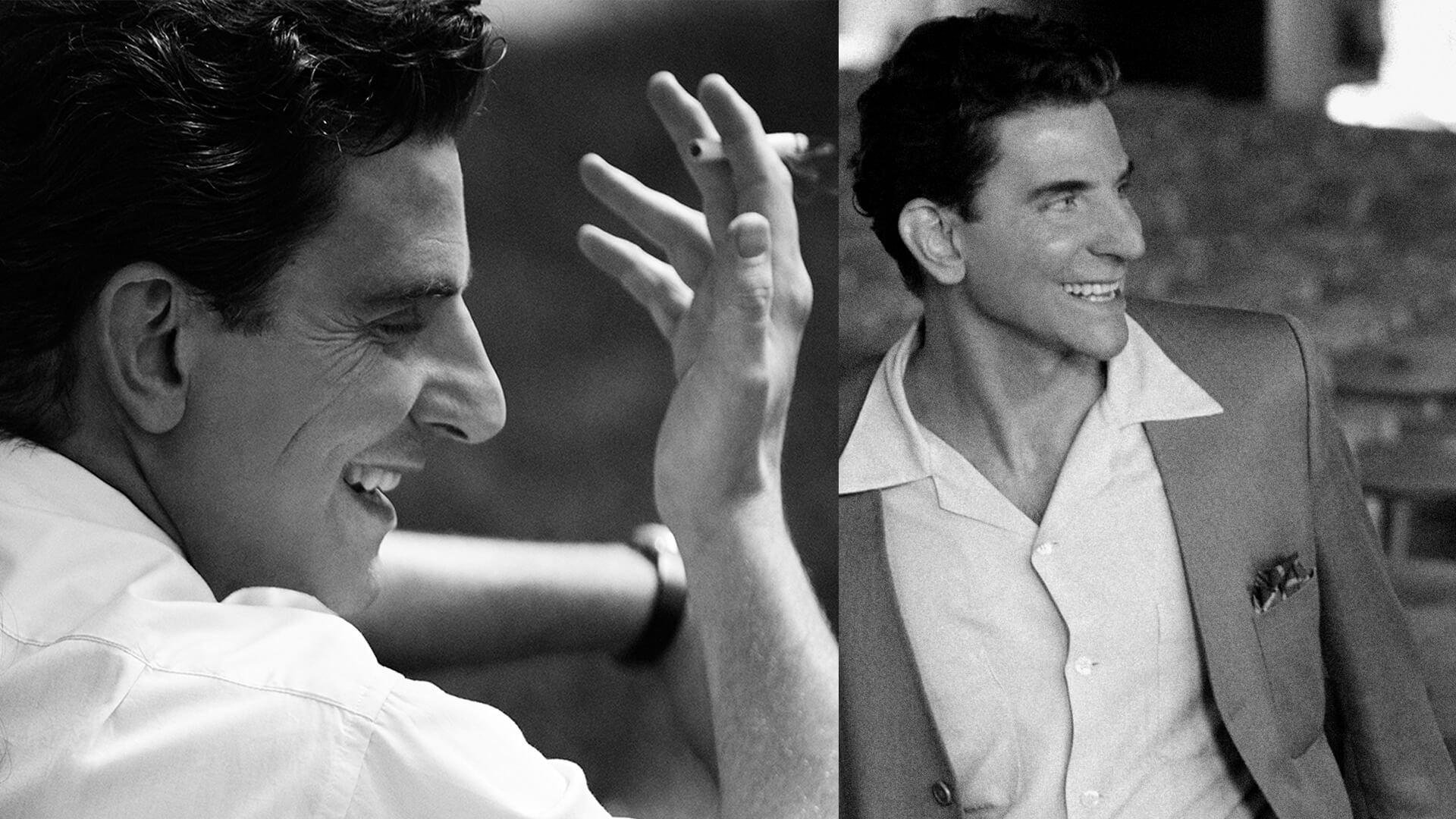Can we please stop talking about Bradley Cooper’s nose?
Twitter is up in arms over the actor wearing a prosthetic nose to play Leonard Bernstein in Maestro

Bradley Cooper as Leonard Bernstein in Maestro. Photo by Jason McDonald/Netflix
Bradley Cooper, a non-Jewish actor, is playing Leonard Bernstein — a decidedly Jewish figure — in the forthcoming film Maestro. He wears a prosthetic nose while doing so.
After Netflix released fresh promotional photos of the actor in this role, some folks on Twitter were not pleased. They accused the actor of antisemitism, of Jewface, of stereotyping, and even of making the famously hot Bernstein less hot.
Is this the latest case of Hollywood antisemitism, or of much ado about nothing?
The Forward’s opinion editor, Laura E. Adkins, and deputy opinion editor, Nora Berman, discuss.
Laura E. Adkins: I’ve read dozens of takes at this point on the whole situation, and I just don’t see a there there. Does the nose look a little bit weird? Perhaps. But is it antisemitic?
Bernstein’s own daughters put out a statement defending Cooper’s portrayal of their father. Steven Spielberg, the Jewiest of Jews, co-produced this film. And Sarah Silverman, who popularized the term “Jewface” to describe non-Jewish actors cast in Jewish roles, ironically will play Bernstein’s sister in the movie.
So what am I missing, Nora? Or are people making something out of nothing?
Nora Berman: In my mind, there are two issues here. One is the issue of non-Jews playing Jews on screen. The other is the appropriateness (and authenticity) of Bradley Cooper’s prosthetic nose.
From what I’ve seen, it seems like the people most upset right now were initially upset by the casting of a non-Jewish actor. Then the prosthetic nose sent them over the edge.
From a purely creative perspective: The prosthetic nose doesn’t look anything like Bernstein’s real nose. So on the makeup front, I personally don’t think this is an accurate resemblance to the real Bernstein.
Adkins: My first reaction to seeing tweets about the nose — and every gripe about actors playing people who are not the sorts of people they are not in real life — was, “oh my god can we please stop talking about this already?!”
There are very real problems facing the Jewish people. Israel’s democracy is on the verge of collapse. Hate speech is out of control on social media. Synagogues are being swatted. And we’re talking about a nose?! In a movie?! A movie that celebrates the life of a very Jewish Jew?!
I mean, come on. Let’s be serious.
Berman: Ultimately, the approval of Bernstein’s family is really important. I’m glad they’re not bothered. It’s also good that this film had at least one Jewish producer.
But, with all due respect to Steven Spielberg, he is not the sole arbiter of appropriate Jewish representation in Hollywood. He also got a significant amount of flack for casting Michelle Williams, a non-Jewish actress, as his mother in The Fabelmans, his semi-autobiographical, Oscar-nominated film. Acclaimed directors can make mistakes, too. And I do think that whoever created and approved this prosthetic … did not nail it.
I do believe that any actor can play any role. However, in terms of casting on Hollywood level, in terms of representation, I believe that the identity of the actor should play a role in the casting when it’s appropriate. It’s not a straightforward issue.
Adkins: Some folks online also claimed that Cooper “basically stole” the movie from Jewish actor Jake Gyllenhaal? Does that matter?
Berman: It’s certainly a massive bummer, to say the least.
I don’t think Cooper had a nefarious scheme to take a Jewish story away from a Jewish actor — it’s Hollywood. This stuff happens.
Do I wish that Cooper, in his role as executive producer, had considered how much more meaningful this film could have been with Gyllenhaal, and maybe let this one slide? Yes.
We’ll never know what Gyllenhaal would have done with the material.
Adkins: Great. Now can we please never talk about Cooper’s nose ever again?
Berman: Gladly.
Readers, what do you think? Email us.


















